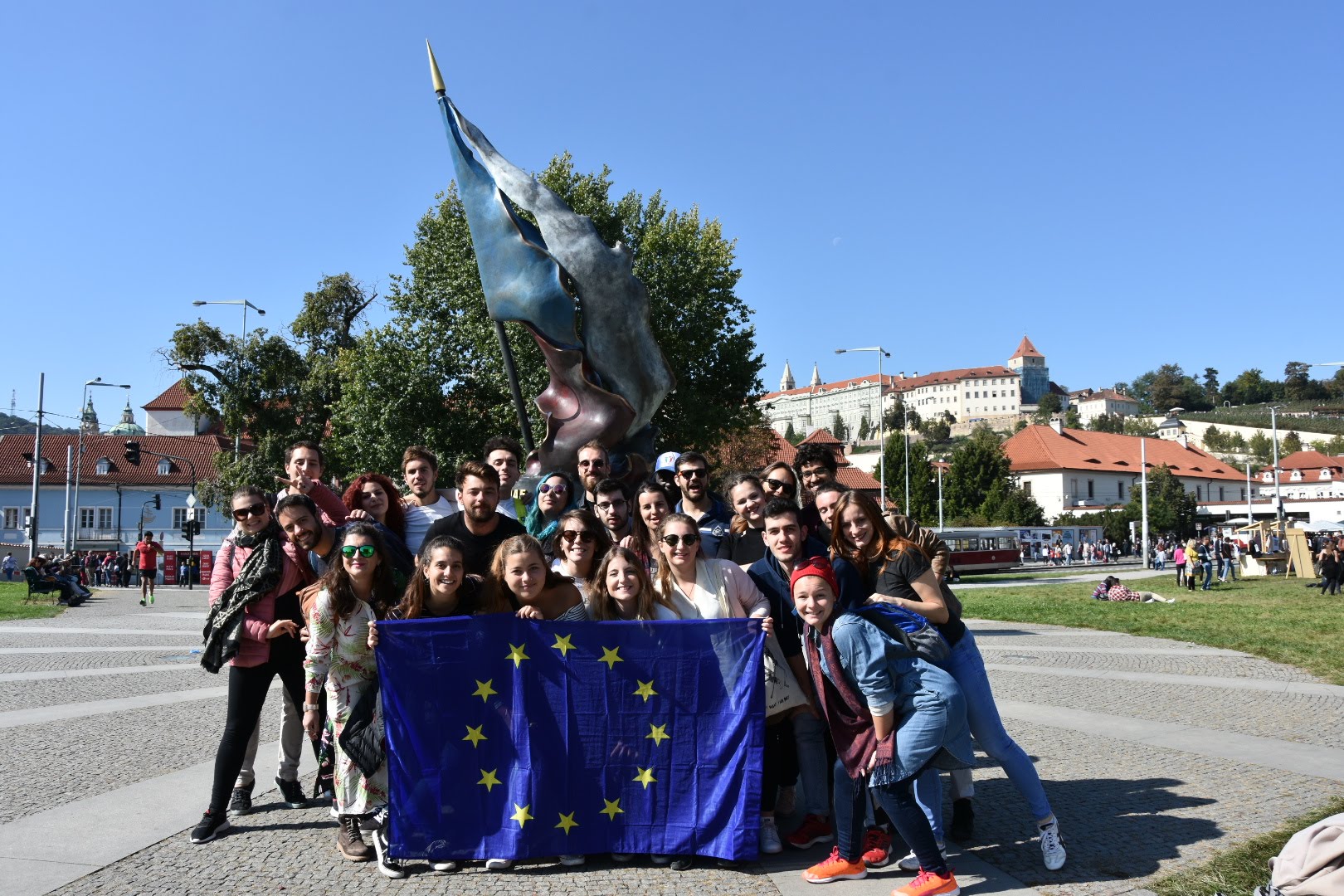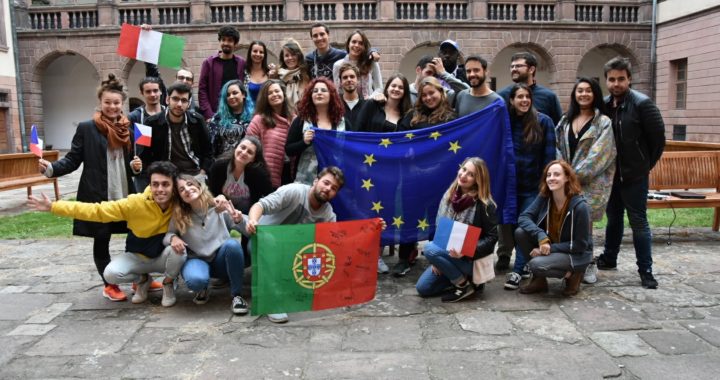Young people from five different European countries and professional actors gathered in a Czech castle with the aim of exploring the topic of youth unemployment, both through theatrical improvisation activities and intercultural exchange for a total period of nine days.
This article has been written by the Italian participants to tell about their experience (italian translation below).
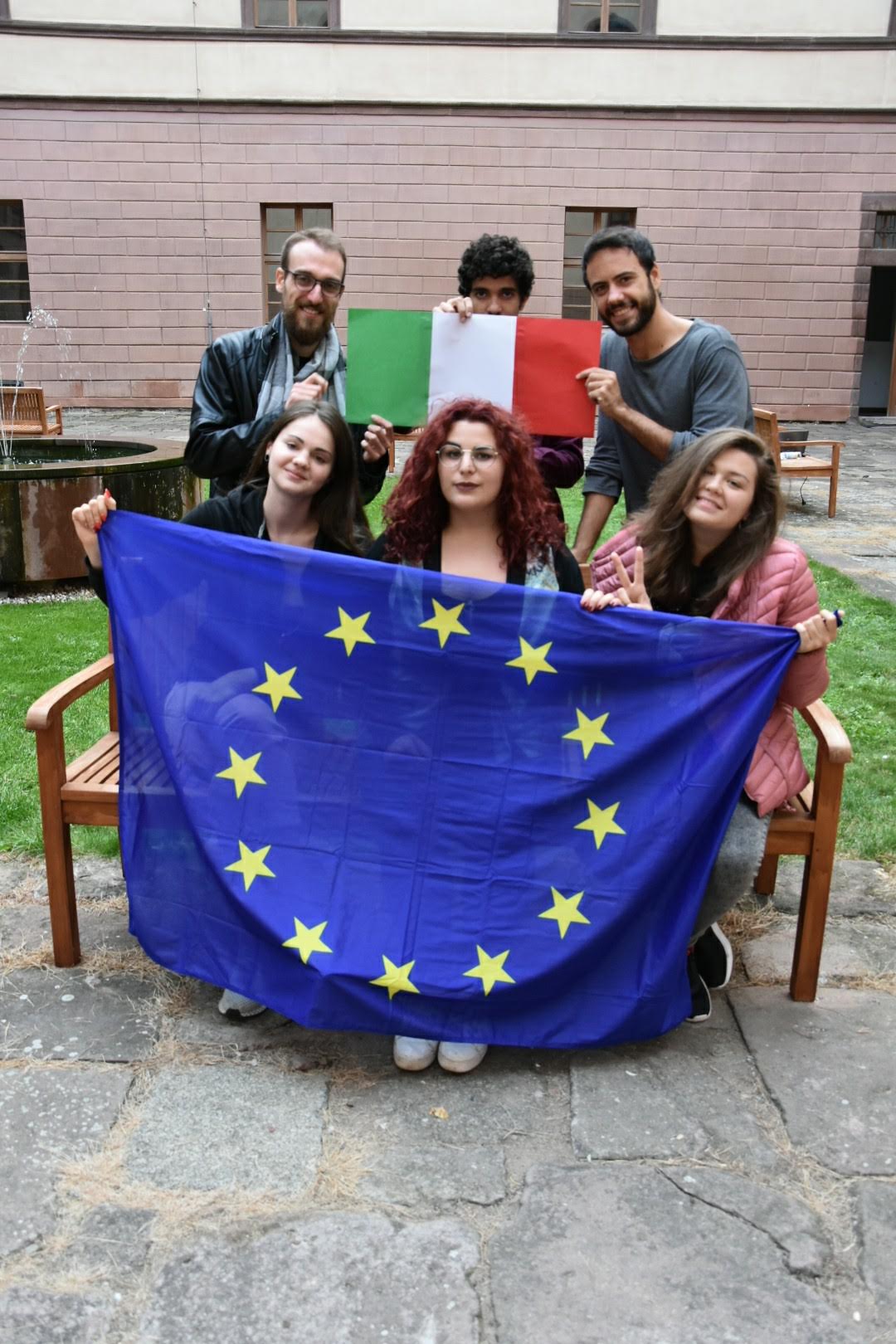
In Kostelec nad Černými Lesy Castle, a few kilometers from Prague, the youngsters started the youth exchange Improv(is)e! by presenting their research on unemployment rates and related local solutions in Italy, France, Spain, Portugal and the Czech Republic, thanks to which it was possible to discover problems and common solutions in countries with different cultures and backgrounds.
Following this activity, the participants immediately engaged in a series of theatrical improvisation workshops, led by a group of professional actors from the organization Blood, Love and Rhetoric. The aim of these activities, in fact, was to improve those soft skills – confidence, flexibility, creativity, relational and communicative skills – so crucial in work environments.
Some of these activities involved the identification of the participants in the roles of employers and workers and in job interviews scenes, which allowed them to develop those skills of flexibility and critical spirit necessary to cope with the real circumstances of the working world. Furthermore, other activities have allowed to improve the awareness of their own body language and of others through workshops of cooperative and improvisational narrative.
The activities of Improv(is)e!, however, included not only theatrical workshops, but also intercultural activities. Every evening, in fact, participants from each country had the opportunity to represent their culture through engaging activities and traditional food tastings.
At the end of the project, what the participants learned was a strong awareness of the differences and similarities of cultural identities existing within the European Union, and above all they developed interpersonal, social and even theatrical skills.
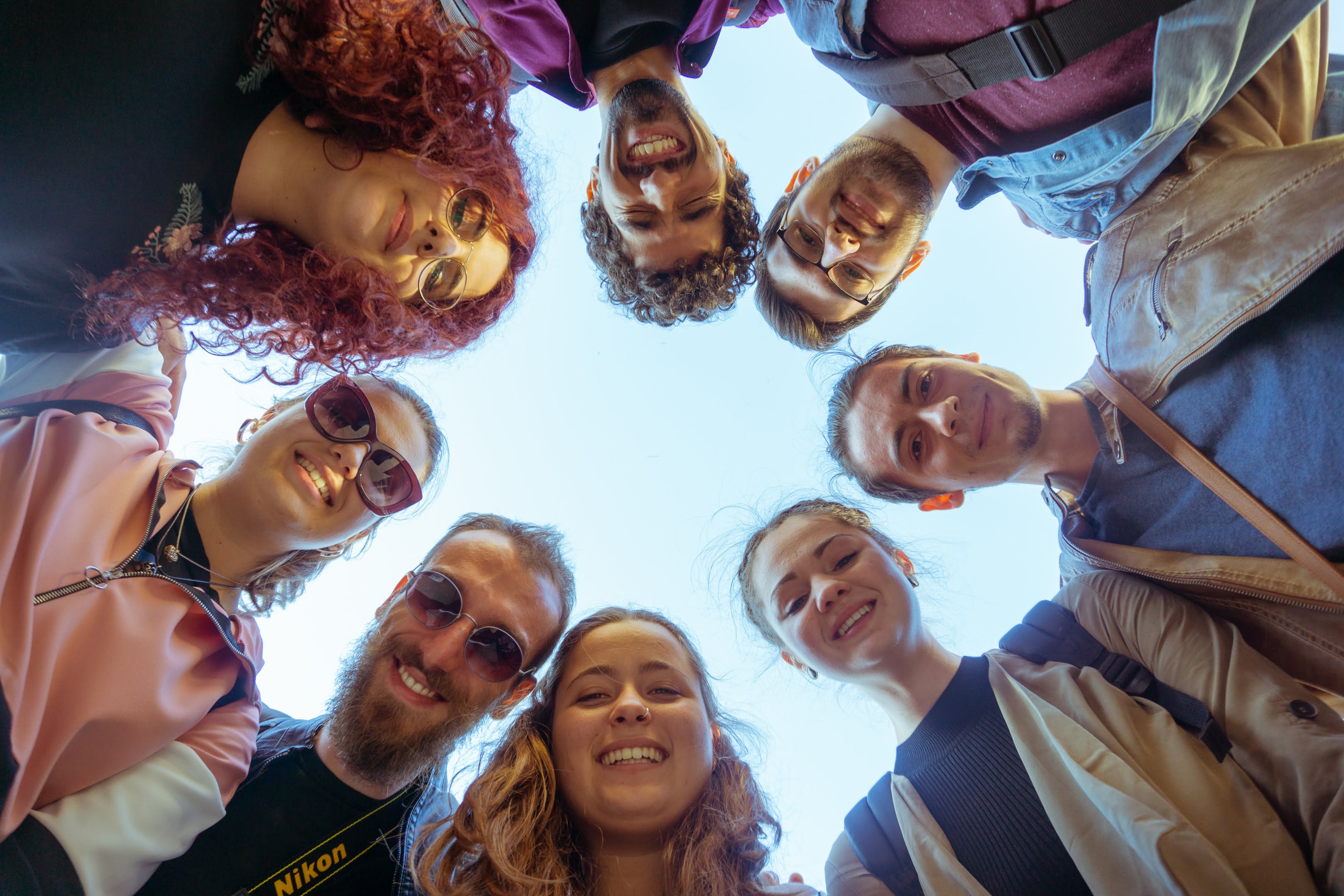
The Improv(is)e! project impressed, most importantly, on the personal level of each participant: limits and fears have been overcome, as well as strong bonds of friendship have been created that will last a long time through all Europe.
The project Improv(is)e! 2019 was my first experience with youth exchanges, so this was the very first time that we got the chance to meet people from other European countries and to work with them as a team. The most important thing that we learned is the ability to question ourself more, and we noticed it because the comparison with other habits and lifestyles made us reconsider a lot of aspects in our life. We feel really grateful for that.
Besides that, we also had the opportunity to fully understand what does it really mean to work as a team, the importance of cohesion, compromise and leadership, which are always said to be important, but we don’t really get the chance to learn them daily.
We feel enriched under many different points of view.
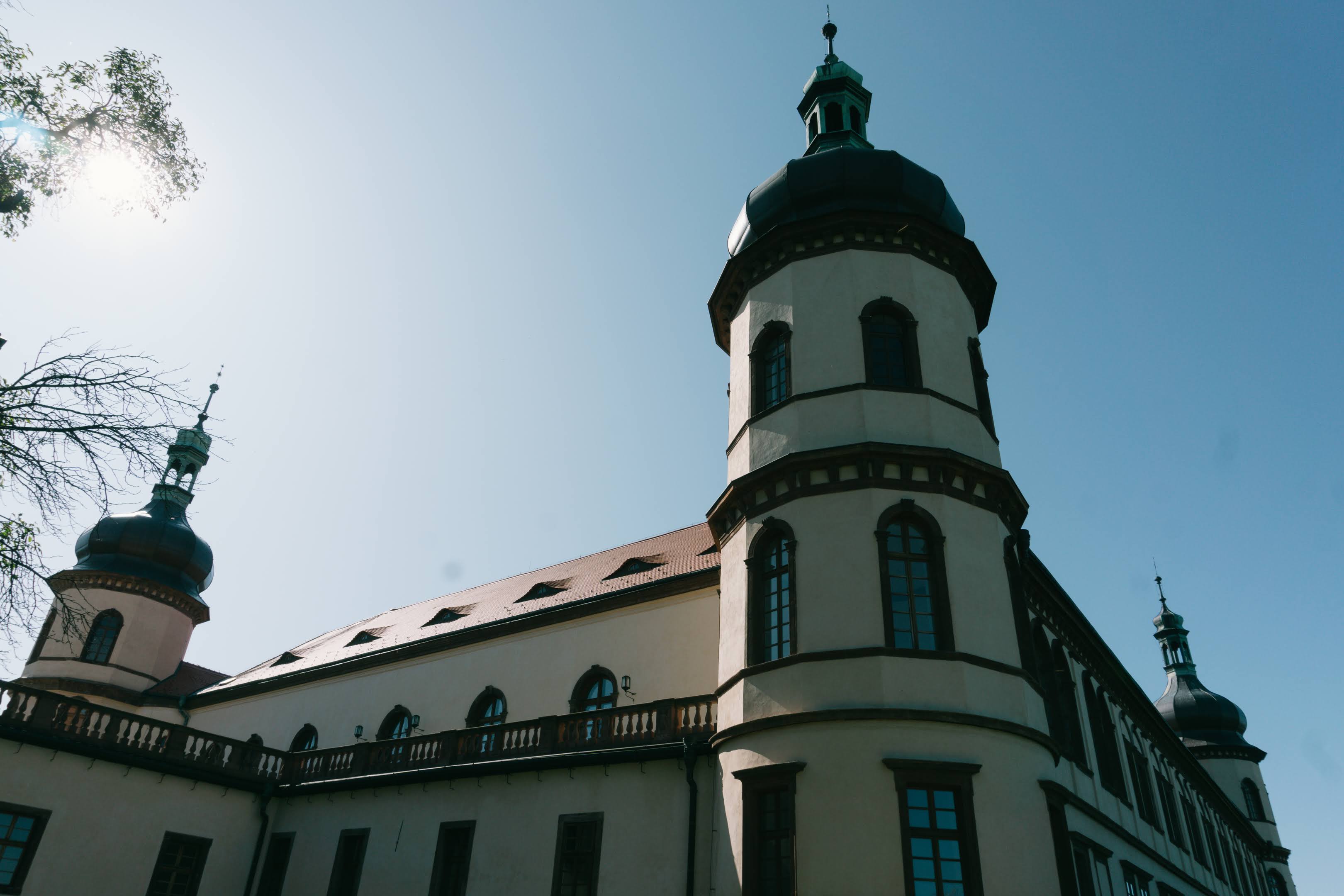
Improv(is)! was my third experience in a Youth Exchange – says Alessandro – Everytime I get home from one of them people ask me about it, and every time it’s difficult to explain.
It is hard to explain why you are so excited when you go.
It is difficult to explain how you can bound with people so deeply in a time so short.
It is difficult to explain why you are so happy and so sad ones you leave.
The way you live everyday, slowly creating the routine, that is never the same because of the different kind of activities, and the different challenges that each organizer makes you face.
I think that’s the main function of Youth Exchange for me: always trying to put myself in new, different situations, to search and find something “new”: new experiences, new knowledge, new emotions, in activities, in unknown places, in people.
Improv(is)e! gave me – says Francesca – and to everyone else, the opportunity to face new kind of challenges, and taught us the skills to overcome them.
Everyday we were asked to set up scenes, to play characters, to stay in it and yet to be ready to change completely at any moment, at a clap of hands; they were training our fantasy playing, and yet they were teaching us how to think faster, how to be creative, useful skills in everyday life, and, as it was the theme of the project, how to use all of these to face the job world.
All of this made me come home happy, full of energies, full of confidence, because I learned something that is gonna be useful in the near future, as I’m gonna graduate in a few months; because I was able to challenge myself everyday, and succeeded at that; because I know that all of this was possible just because I was part of a group, that we, all together, managed to built.
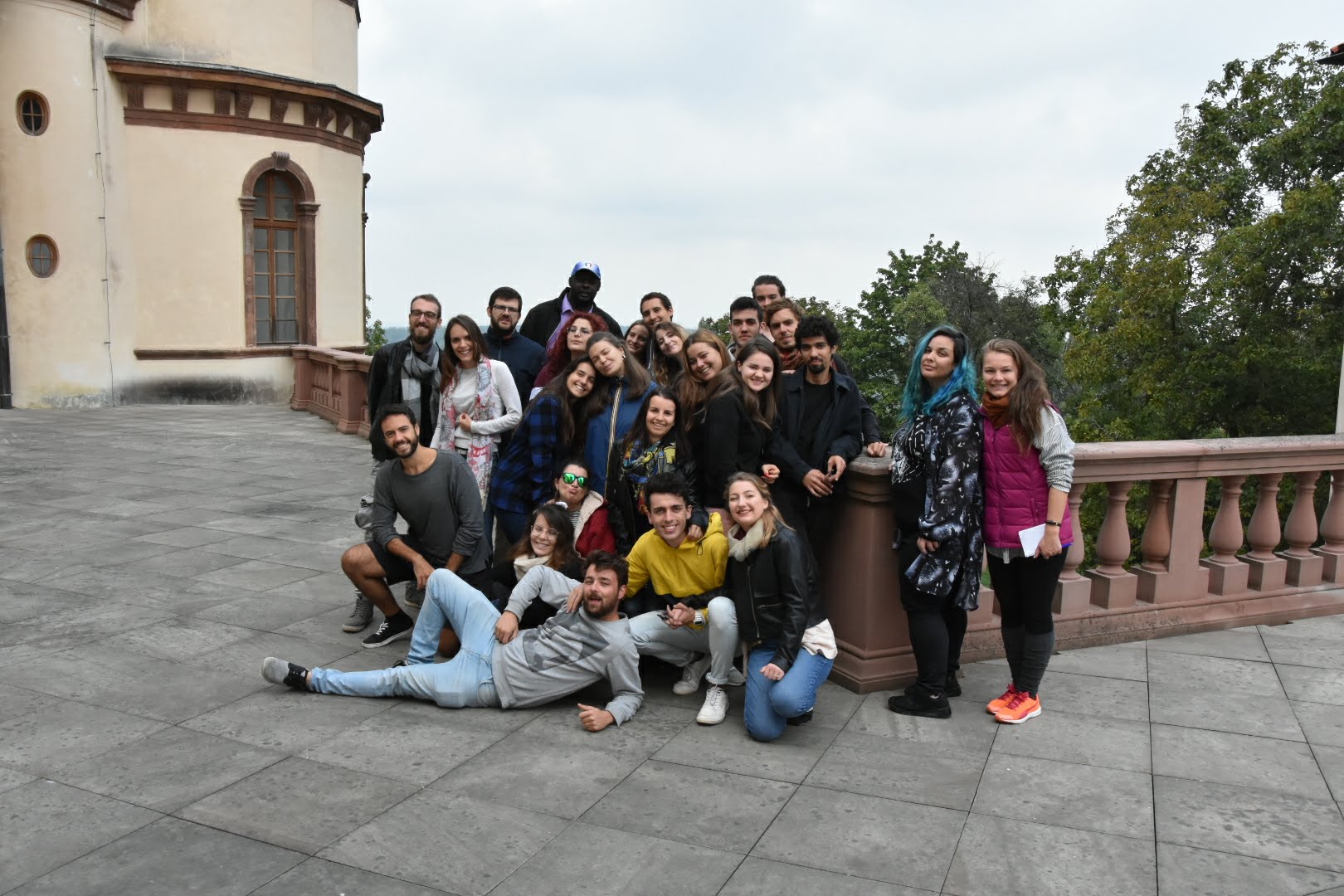
[ITALIAN]
Ragazzi da cinque paesi europei diversi e attori professionisti si sono riuniti in un castello ceco con lo scopo di approfondire la tematica della disoccupazione giovanile, sia attraverso attività di improvvisazione teatrale che di scambio interculturale per un periodo totale di nove giorni.
Nel castello di Kostelec nad Černými, a pochi chilometri da Praga, i ragazzi hanno iniziato questo progetto presentando le proprie ricerche sui tassi di disoccupazione e sulle relative soluzioni locali di Italia, Francia, Spagna, Portogallo e Repubblica Ceca, grazie alle quali è stato possibile scoprire problemi e soluzioni comuni di Paesi di culture e background differenti.
In seguito a quest’attività, i partecipanti si sono immediatamente lanciati in una serie di workshop di improvvisazione teatrale, guidati da un gruppo di attori professionisti dell’organizzazione Blood, Love and Rethoric. Lo scopo di queste attività, infatti, era quello di migliorare quelle abilità di soft skill – fiducia, flessibilità, creatività, capacità relazionali e comunicative – tanto cruciali nel mondo del lavoro.
Alcune di queste attività hanno previsto l’immedesimazione dei partecipanti nei ruoli di datori di lavoro e lavoratori o in situazioni di colloqui di lavoro, che hanno permesso di sviluppare quelle capacità di flessibilità e di spirito critico necessari a far fronte a circostanze reali del mondo lavorativo. Altre attività, inoltre, hanno anche permesso di migliorare la consapevolezza del linguaggio del corpo proprio ed altrui attraverso workshop di stretta cooperazione ed improvvisazione narrativa.
Le attività del progetto di Improv(is)e non si sono limitate a quelle teatrali, ma anche ad attività interculturali. Sera dopo sera, i partecipanti di ciascun Paese hanno avuto la possibilità di rappresentare la propria cultura attraverso attività interattive e degustazioni culinarie tipiche.
Alla fine del progetto, ciò che hanno imparato i partecipanti è stata una forte consapevolezza delle differenze e delle uguaglianze delle identità culturali esistenti all’interno dell’Unione Europea, ma soprattutto hanno sviluppato abilità interpersonali, sociali e anche teatrali.
Il progetto di Improv(is)e ha soprattutto colpito, però, sul livello personale di ciascun partecipante: si sono superati limiti e paure, così come si sono creati forti legami di amicizia che dureranno a lungo.
